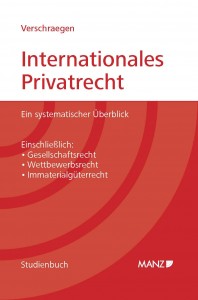Kiobel–The Plot Thickens
What does a plaintiff do when the United States Government originally supports your case and then, after the Supreme Court requests further briefing, comes out against you? That is the question that the plaintiffs in Kiobel v. Royal Dutch Petroleum are facing today. As previously reported here, the United States Supreme Court initially granted certiorari in Kiobel on the questions of whether (1) the issue of corporate civil tort liability under the Alien Tort Statute, 28 U.S.C. § 1350, is a merits question or instead an issue of subject matter jurisdiction; and (2) corporations are immune from tort liability for violations of the law of nations such as torture, extrajudicial executions or genocide or may instead be sued in the same manner as any other private party defendant under the ATS for such egregious violations. After oral argument, the Court took the atypical step of ordering reargument and asked for briefing on the following question: “Whether and under what circumstances the Alien Tort Statute, 28 U.S.C. § 1350, allows courts to recognize a cause of action for violations of the law of nations occurring within the territory of a sovereign other than the United States.”
As reported yesterday, Petitioners filed their supplemental brief arguing that in at least some circustances the ATS can be applied extraterritorially. Late yesterday, the United States Government filed its supplemental amicus brief.
All I can say is “Wow!” In its initial brief, the United States urged reversal of the Second Circuit and argued that “[c]ourts may recognize corporate liability in actions under the ATS as a matter of federal common law.” In other words, the Government believed the plaintiffs deserved their day in court and should not be precluded from suing corporations. Now, the Government has changed its position. In its supplemental brief, it urges partial affirmance and explains that the Court should not “fashion a federal common-law cause of action” on the facts of this case where “Nigerian plaintiffs are suing Dutch and British corporations for allegedly aiding and abetting the Nigerian military and police forces in committing [crimes] in Nigeria.”
But, that isn’t all. The Government goes on to argue that courts should apply forum non conveniens and exhaustion doctrines at the beginning of ATS cases to limit the filing of ATS cases in the United States where the U.S. nexus is slight. In the brief’s conclusion, the SG reiterated its view that corporations are amenable to suit, by explaining that the Second Circuit should still be reversed on that point. But, that point, in the SG’s view, is now secondary.
Notably, one name and department that appeared on the initial amicus brief does not appear on the supplemental brief–Harold Koh and the State Department.
So, what can we make of this? Reading betwen the lines, my sense is that the SG’s office and perhaps the Executive Branch generally saw the writing on the wall based on the Court’s oral argument and rebriefing order that ATS litigation was going to be shut down based on extraterritoriality–a position the Bush Administration had previously argued. Not wanting to go that far, the SG’s office tried to give the Court comfort that cases with no U.S. nexus would not be filed here and other doctrines like forum non conveniens and exhaustion would keep those cases out of U.S. courts. What are we to make of Harold Koh and the State Department’s absence? It sounds like there might be some disagreement between the SG’s office and the State Department on approach. What would the State Department’s argument be, I wonder?
It will be interesting to see what the Defendant/Respondents make of all of this.

